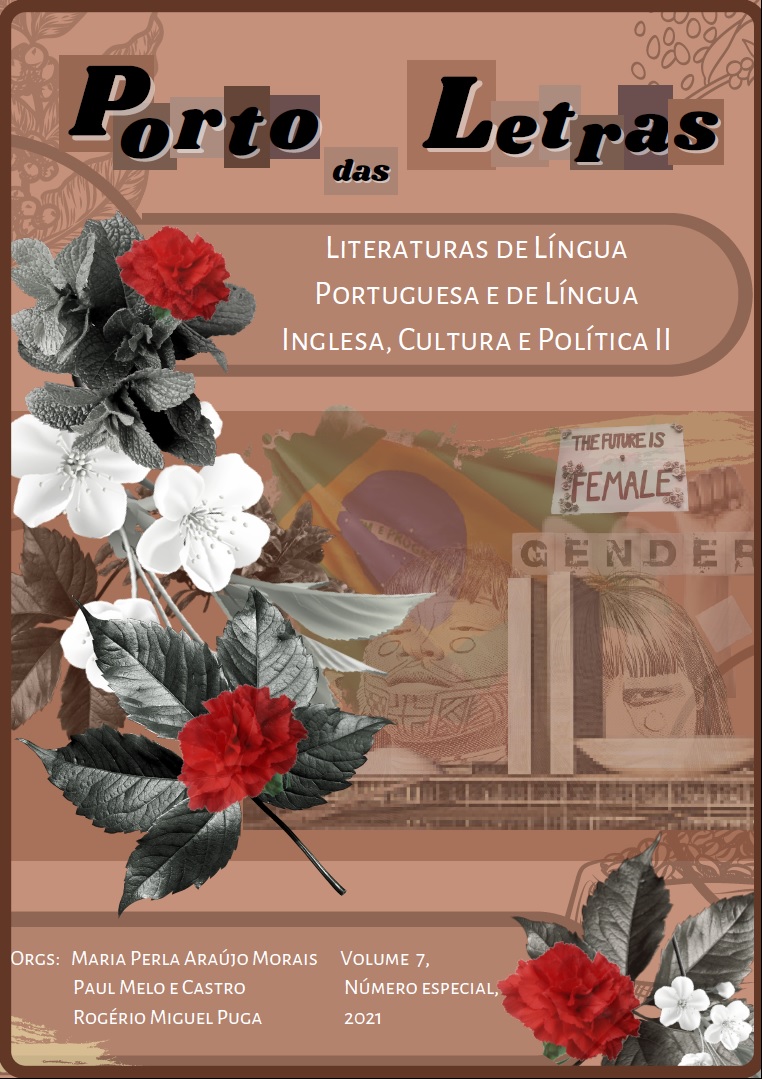VERÁS MULHERES NESSE PAÍS?
Uma leitura das personagens femininas em “Não verás país nenhum”, de Ignácio de Loyola Brandão.
Keywords:
Literatura; Mulheres; Representação; Identidade; PercepçãoAbstract
This article promotes a reflection about the female characters of the book "And still the earth", a novel by Ignácio de Loyola Brandão, making observations regarding the concepts of "identity", "representation", and "perception", pointing out the fact that these subjects are more intricate and paradoxical than they seem. The main point is to analyze how women are depicted throughout the book, their social role, and the development of female identity within the narrative, since their silent or their speech reveals how much they accept the authoritarianism. The novels are games of exclusion, restriction or reinforce of certain ideas, as stated by Michael Foucault, and it's up to the author to insert the literary language in the non literary (and vice versa). Consequently, it is possible to glimpse the influence of patriarchy in the book, not only through what is written, but through practices that support certain "truths" that make the characters get used to the rules and mores set, reproducing them over time. Literature has an indispensable political and social function, because it shows the latent issues of the human societies, besides fomenting reflections about certain times in history and encouraging the critical and reflective thinking. Therefore, literary texts are the raw material to study issues, such as gender equality.
References
DÍAS-BENÍTEZ, M. E.; MATTOS, A. Interseccionalidades: Zonas de problematização e questões metodológicas. In:_ Metodologia e Relações Interseccionais: debates contemporâneos, Vol.II. Rio de Janeiro, Ed. PUC-RJ, 2019.
DÍAS-BENÍTEZ, M. E. Muros e Pontes no horizonte da prática feminista: uma reflexão.
FEDERICI, Silvia. Calibã e a Bruxa. Mulheres, corpos e acumulação primitiva. São Paulo: Elefante, 2017.
FOUCAULT, M. A vida dos homens infames. Ditos & Escritos IV. Rio de Janeiro: Forense Universitária, 2006, p. 203-222.
_______________ A ordem do discurso. São Paulo: Edições Loyola, 1996.
_______________ A história da sexualidade: a vontade de saber. Rio de Janeiro: Graal, 1999. Capítulo IV.
HALL, S. Cultura e Representação. Rio de Janeiro: PUC-RJ, 2016
LAPOUJADE, D. As existências mínimas. São Paulo: Les Editions de Minuit, 2017.
LOYOLA BRANDÃO, I. Não Verás País Nenhum. São Paulo: Global, 2008.
RIBEIRO, D. O que é lugar de fala? Belo Horizonte: Letramento: Justificando, 2017.
SEGATO, Rita Laura. Contra-pedagogías de la crueldad. Buenos Aires: Prometeo Libros, 2018.
VÁSQUEZ, G. Maternidade e feminismo: notas sobre uma relação plural. Revista Trilhas da História. Três Lagoas, v.3, nº 6 jan-jun, 2014. p.167-181.
Downloads
Published
How to Cite
Issue
Section
License
Os autores concordam com os termos da Declaração de Direito Autoral, que se aplicará a esta submissão caso seja publicada nesta revista (comentários ao editor podem ser incluídos a seguir).




